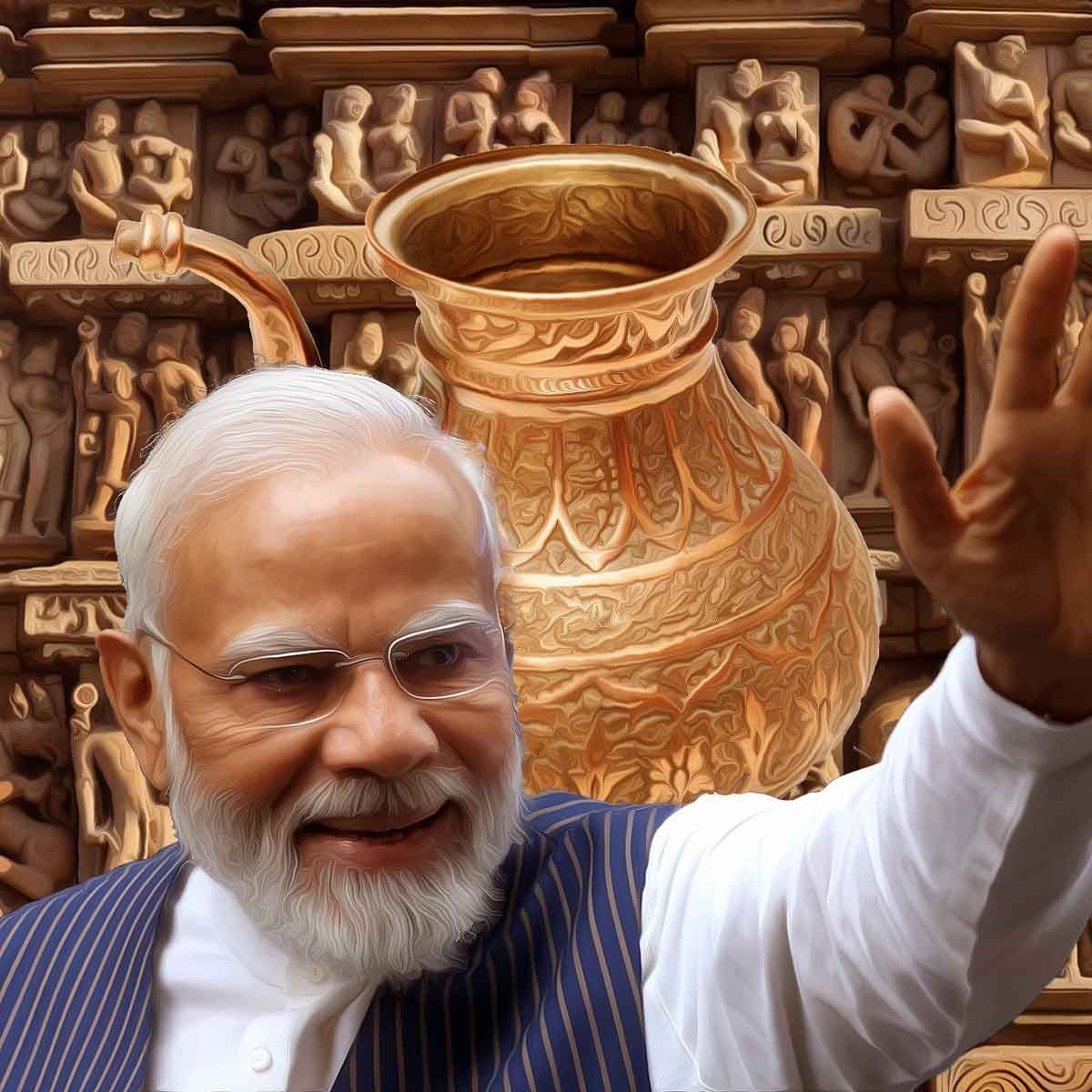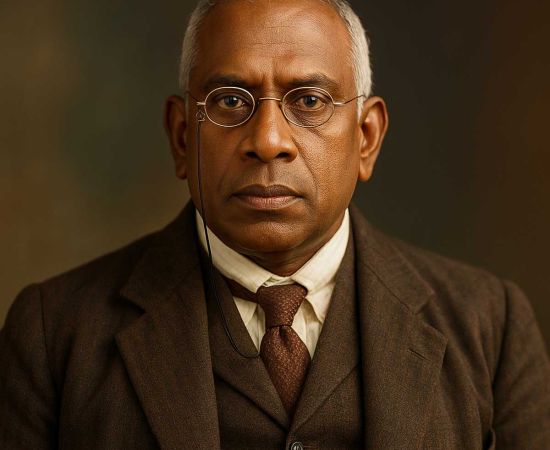MORE COVERAGE
Twitter Coverage
Satyaagrah
Written on
Satyaagrah
Written on
Satyaagrah
Written on
Satyaagrah
Written on
Satyaagrah
Written on
JOIN SATYAAGRAH SOCIAL MEDIA
"नमाज़-ए-जंग": Denied entry at local mosques, Muslim girls at Nirmala College audaciously demanded prayer space; when refused—citing a 72-year precedent—the students escalated their protest, culminating in gheraoing of the principal and creating a ruckus

Tensions flared at Nirmala College in Muvattupuzha, Kerala, where a storm of controversy brewed as the institution denied Muslim female students the facility to conduct their Friday prayers on the premises. This Catholic college, under the governance of the Kothamangalam diocese, became the epicenter of dissent starting from July 26. On this day, the college staff halted a few Muslim girl students from using a college room to perform their namaz, igniting immediate protests.
|
These Muslim girls, devoid of a prayer facility at the local mosque, sought refuge within their educational institution to fulfill their religious obligations. The request for a dedicated space to offer their mandatory Friday prayers, however, met with a stern refusal from the college authorities.
Adding to the strife, the college’s decision—backed by the Bharatiya Janata Party (BJP)—was criticized by Church officials as a "sectarian move to target the college," deepening the rift between the students and the administration.
The drama intensified when Father Kannadan Francis, the principal, was confronted on a Friday. He faced a group of Muslim female students who had used the college’s common room for their prayers. After their initial plea was rebuffed, they sought a designated prayer room, only to be denied again.
The confrontation reached a climax as additional Muslim students rallied, allegedly surrounding Father Francis in a bold gherao.
In a further explanation of the tensions at Nirmala College, Father Kannadan Francis pointed out the proximity of a mosque just 200 meters away from the college, where male students are allowed to pray. However, the Muslim female students raised concerns, stating they were not permitted to use the mosque for their prayers.
In a twist to the narrative, Kevin Peter from the Church’s Auxiliary for Social Actions (CASA) mentioned an alternative mosque nearby that does allow women to pray. This revelation brought to light more options for the students, though the issue at the college remained unresolved.
Father Francis emphasized the college's stance: “We have informed them that the college cannot provide a room for prayers,” making clear that the request came from students who were not part of any specific student organization. This statement underlines the college’s position on maintaining its established policies regarding the use of its space.
The vice-principal, A.J. Emmanuel, in an interview with UCA News, reinforced this policy by stating that the 72-year-old institution “has no provision for allowing space for offering namaz.” He firmly stated that there are no plans to alter this longstanding policy, which does not accommodate special provisions for religious practices that are not a part of the college’s tradition.
|
Church officials interpret the sudden surge in demand for prayer space as more than just a request for accommodation; they see it as an organized effort to discredit Christian institutions across Kerala, a state where Muslims now represent 26 percent of the 33 million population. Bishop Thomas Tharayil, convener of the Public Affairs Committee (PAC) of the Syro-Malabar Church, articulated concerns over what he described as a “concerted and planned move in recent times against Christian minority institutions.”
The political ramifications of the ongoing controversy at Nirmala College have become increasingly evident as BJP state president K Surendran entered the fray, describing the students demanding prayer space as "extremist elements." He went further to criticize the INDI Alliance, which includes both the Left and Congress, accusing them of supporting these demands.
In a bold statement, Surendran questioned the reciprocity of such demands, asking, “Do Muslim-managed colleges provide prayer spaces for students of other religions? If Muslim groups cause trouble in colleges, BJP will offer protection,” thereby positioning the BJP as a defender of educational institutions against disruptions caused by religious demands.
Contrasting with this strong political stance, the Students’ Federation of India (SFI), affiliated with the ruling CPI(M), maintained its commitment to secularism. The SFI explicitly stated that it does not support the incorporation of religious practices on educational campuses, emphasizing a clear separation between education and religious activities.
Social media has also become a battleground for this issue, with many users pointing out what they perceive as hypocrisy in the coverage of religious and cultural controversies. Critics specifically targeted leftist media outlets like The News Minute for their intense focus on the Sabarimala Temple issue, where women of menstrual age were barred, yet showing apparent disinterest in the current situation involving Muslim girls seeking prayer space in a Christian college.
A poignant question raised by a social media user encapsulates the broader societal debate: “Where are the feminists? They were doing overtime to get into Garbh Griha of Sabrimala temple in the same Kerala, calling Hinduism regressive full of patriarchy. Won’t they fight for these Muslim girls? Won’t they protest against mosques?”, challenging the consistency of feminist activism across different religious contexts.
|
Syro-Malabar Church Slams Students
The Public Affairs Committee (PAC) of the Syro-Malabar Church has emphatically labeled the protests by some students at Nirmala College in Muvattupuzha, Kerala, as a "serious" matter. In a recent statement issued on a Sunday, Bishop Thomas Tharayil, the convener of the PAC, articulated deep concerns regarding what he perceives as a systematic and deliberate assault on Christian minority institutions. He described the unfolding events at Nirmala College as part of a broader religious and communal "invasion" aimed at such institutions.
Bishop Tharayil's statement emphasized the gravity of the situation, declaring that any attempts to undermine Christian minority institutions would be met with substantial resistance. This strong stance underscores the Church's resolve to protect its educational entities against perceived threats.
Notably, Christians represent only 18 percent of Kerala’s population, positioning them as a religious minority alongside Muslims, who also form a minority in a state where Hindus constitute 54 percent of the populace. This demographic detail highlights the complex interplay of religious dynamics within Kerala.
The Eastern rite Syro-Malabar Church, which oversees the diocese, has voiced its concerns to the state government, urging protective measures for the college and its managers amidst fears that student protests could escalate into violence.
Bishop Tharayil reiterated the Church's position on July 28, stating that the demand for prayer space within the college holds "no legal or moral standing." He further reinforced that the pressure being applied was part of a calculated plan for a "religious-communal invasion of Christian institutions," and stressed that any efforts aimed at destabilizing these institutions would be confronted decisively.
Amid these tensions, Nirmala College, known for its high academic standards, faces potential disruptions to its educational activities due to these recent developments, as highlighted by the Bishop.
Additionally, the Catholic Congress, a lay association affiliated with the Church, echoed the condemnation of the protests, questioning whether it was the college’s responsibility to provide space for prayer. The association firmly stated on July 28 that the demand could not be accepted "just because the mosque does not allow women inside it."
This sentiment was further supported by a Church leader who chose to remain anonymous, posing a rhetorical question: "When the Muslim community does not make space for women to offer namaz, how can they ask a Christian management," thereby questioning the fairness and rationale behind the demands being made by the protesting students.
The backdrop of this controversy is a region with a haunting history of religious conflict and violence. Not far from Nirmala College, about 20 km east in Muvattupuzha, lies Newman College, Thodupuzha. This institution became a site of horrific violence when Malayalam Professor TJ Joseph was attacked by Islamist extremists who accused him of blasphemy. The incident, which involved the professor having his limbs chopped off, occurred right in Joseph's hometown. After the attack, Newman College, managed by another Christian institution, distanced itself from the professor, who now leads a life marked by solitude.
This grim memory lingers over the current disputes at Nirmala College, where a group of students has staged a sit-in outside the Principal’s office. These students demand that the college provide a room designated for their religious practices. However, this demand has been firmly rejected by the college authorities, who argue that it lacks both legal and moral justification and serves only to sow discord within the campus community.
The controversy has sparked broader discussions about the role of educational spaces in religious practices. Hindus in the area have argued that if space is to be provided for Namaz, equivalent accommodations should be made for Hindu and Christian students as well. This debate underscores a critical point about the purpose of educational institutions and the need to maintain their secular nature.
Adding his voice to the conversation, Hindu activist Pratheesh Vishwanath criticized the demand for prayer spaces within educational settings. He emphasized that schools and colleges should remain secular environments, focused solely on learning rather than religious activities. "Educational institutions like schools and colleges are places of learning, not religious establishments. They should remain secular spaces, free from spiritual practices. Knowledge transcends religion and caste, and granting special privileges to one religious group undermines the secular nature of educational institutions in a secular country like Bharat," Vishwanath stated.
The debate over prayer spaces in educational institutions raises significant constitutional and ethical questions. It is deemed unconstitutional for a college management to provide facilities that cater exclusively to one religious group. The principle of secularism, as upheld by Bharat, mandates that if prayer facilities are provided for one group, similar facilities must be extended to students of all other faiths. This ensures a balanced approach that respects the religious diversity of the student body.
Moreover, the issue extends beyond mere provision of space; it touches on the content of the prayers themselves. The verse of Al-Fatihah, commonly recited during the five daily Muslim prayers, contains references that some interpret as divisive. This interpretation suggests that through these prayers, Muslims are affirming a belief that Christians and Jews have strayed from the correct path. Given the frequency of these prayers, there is a concern that such sentiments could promote divisions among students of different faiths, potentially leading to ideological segregation within the academic environment.
This complex scenario prompts a critical inquiry: Are our educational institutions meant to be centers of learning or do they risk becoming breeding grounds for religious and ideological divisions? This question challenges the core mission of educational environments as spaces for intellectual development and cross-cultural understanding, rather than arenas for sectarian conflict and extremism.
The situation reached a temporary resolution when the college principal, after being surrounded by protesting students, promised to consult with the college management and provide an update on Monday.
As the community awaits further developments, the discussion continues about the appropriate role of religion in educational settings and the implications of accommodating specific religious practices within secular institutions. This case serves as a poignant reminder of the delicate balance that must be maintained between respecting religious diversity and upholding the secular and educational principles that define academic institutions.
 Support Us
Support Us
Satyagraha was born from the heart of our land, with an undying aim to unveil the true essence of Bharat. It seeks to illuminate the hidden tales of our valiant freedom fighters and the rich chronicles that haven't yet sung their complete melody in the mainstream.
While platforms like NDTV and 'The Wire' effortlessly garner funds under the banner of safeguarding democracy, we at Satyagraha walk a different path. Our strength and resonance come from you. In this journey to weave a stronger Bharat, every little contribution amplifies our voice. Let's come together, contribute as you can, and champion the true spirit of our nation.
 |  |  |
| ICICI Bank of Satyaagrah | Razorpay Bank of Satyaagrah | PayPal Bank of Satyaagrah - For International Payments |
If all above doesn't work, then try the LINK below:
Please share the article on other platforms
DISCLAIMER: The author is solely responsible for the views expressed in this article. The author carries the responsibility for citing and/or licensing of images utilized within the text. The website also frequently uses non-commercial images for representational purposes only in line with the article. We are not responsible for the authenticity of such images. If some images have a copyright issue, we request the person/entity to contact us at satyaagrahindia@gmail.com and we will take the necessary actions to resolve the issue.
Related Articles
- "घर का चिराग": Introvert Affan unleashed horror in Venjaramoodu, killing his grandmother, uncle, aunt, girlfriend, and 13-year-old brother—whom he fed his favorite meal before murder—leaving his cancer-stricken mother critical, then surrendered
- "The Kerala Story 2.0": In a trend that's both provocative and poignant, reels showing Muslim girls removing bindis from Hindu classmates and making them wear hijabs going viral, highlighting urgent discussions on identity, coercion, and cultural norms
- Pinarayi Vijayan's Communist govt promotes 'Islam in Kerala' through a detailed microsit, while tourism seems the front, questions loom: Is it genuine promotion or subtle appeasement? Accusations of historical distortions by the Minister add to the debate
- "वफ़ा-ए-वहम": Vishnu Radhakrishnan, falsely framed by Kerala Muslims, narrowly escaped beheading, secures release from a 10-year jail term in Saudi Arabia, family's relentless fight and Nouf Marwaai's aid tell a tale of resilience & hope against all odds
- Land Jihad being carried out by Waqf Board much more dangerous than Love Jihad; Hindus need to fight this
- Insane utterances of Islamic preachers in Kerala from 'Satan entering the body if don’t chant ‘Bismi’ while having sex' to 'women having big breasts in paradise'
- As per Shariah law it is deemed unethical for Muslims to earn interest in any investment: Did you know India has ‘Shariah Indices’ for companies, like BSE SENSEX? How ‘Islamic investment’ is thriving though RBI disallowed Islamic banking
- Five LeT terrorists planned bomb blast at Darbhanga railway station, had visited Pakistan several times: NIA files charge-sheets
- "Waqf Act is against secularism, unity, and integrity of the nation; Waqf is not mentioned anywhere in the Constitution" says Ashwini Upadhyay: Filed PIL in Delhi HC challenging provisions of Waqf Act
- Instagram influencers insist that 'Hindus should be identified, raped and killed openly’: Audio clip of Sabnam and her friend Nadeem abusing Hindus goes viral on social media platforms
- Award-winning KR Usha Kumari known worldwide dedicated 23 years of her life in teaching tribal children in forests, now at age of 54 sweeps at Kerala govt school in Thiruvanathapuram: Communist govt in Kerala shuts tribal schools
- “Essence of lying is in deception, not in words”: Juice Jihad - Faisal posing as Rahul was serving Fasting Juice by mixing meat with ice in Bareilly, was smiling when caught, said 'mistake has been made', board had 'Truth, cleanliness & purity' written
- Illegal mosque at Bengaluru railway station converted back to the porters’ restroom after protest from Hindu activists
- Prophecies of Jogendra Nath Mandal getting real after seventy years of his return from Pakistan
- Mathura Grooming Jihad: Father of 4 kids Pappu Khan brutally killed girlfriend Dolly with an axe after inviting her for Eid, both were married with different spouses and living away from their homes in a live-in relationship



























